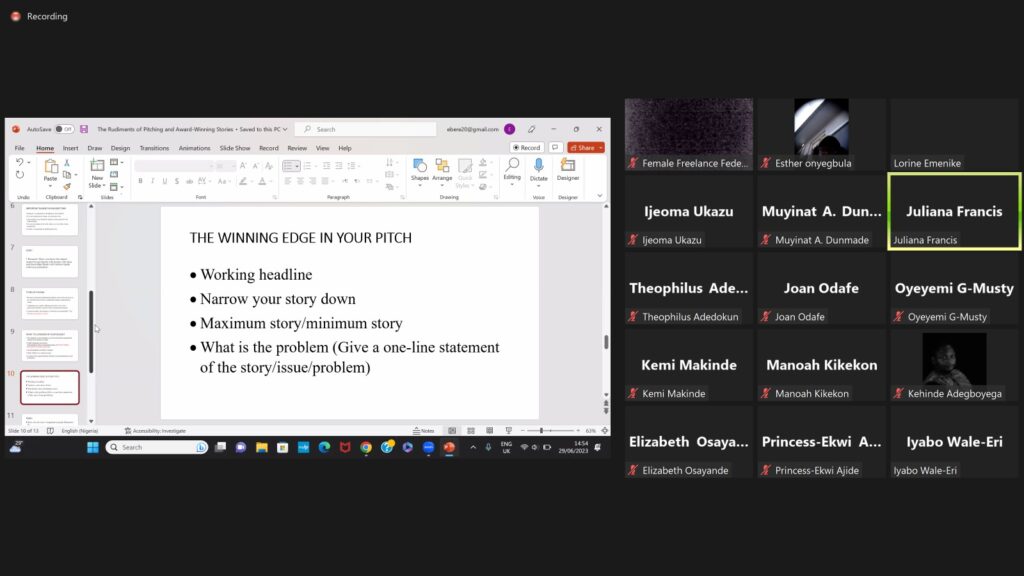Deputy Editor of Eagle Online and Fellow, Wole Soyinka Female Reporters Leadership Programme, Juliana Francis has shared insights into the essential elements of pitching and obtaining grants for investigative journalism.
While speaking at the Fourth Media Exposë; a webinar of the Female Freelancers Federation (FFF), titled, “The Rudiments of Pitching and Winning,” Francis emphasised the need for journalists to approach pitching with finesse, considering the competitive landscape they face in the industry.
According to her, funding plays a pivotal role in investigative reporting, and while grants may not always be easily accessible, pitching effectively becomes paramount.
“Pitching is akin to selling an idea to a panel of judges,” stated Francis, highlighting the persuasive nature required to secure funding for investigative journalism endeavours.
Francis further emphasised that seeking grants allows journalists to maintain their professionalism and independence, avoiding the potential compromises that may arise when relying on individuals for financial support.
She underlined the fact that grants are specifically intended to cover investigative expenses, ensuring the successful execution of the agreed-upon story.
READ ALSO: 9 worldwide Media opportunities with deadlines
Drawing on her years of experience, Francis cautioned against the practice of simply collecting grants without producing corresponding stories, as it undermines the profession’s reputation.
She also warned against misusing grant funds for personal financial gain, while stressing the values of integrity and truthfulness in journalistic pursuits. Instead, she encouraged journalists to pursue grants that align with their specific story ideas.
Speaking on the winning edge in pitching a story, the multiple award-winning crime reporter advised journalists to have a well-defined subject matter and conduct thorough research.
“Journalists must stay informed about the latest developments related to their subject, utilising search engines like Google and consulting experts in the field. Establishing connections with mentors who are willing to provide guidance and support is equally vital,” she stated.
“An investigative story should be narrowed down and be centred around a specific issue; from a human angle, presenting its significance and establishing a timeframe for its execution”.
On budgeting, the Wole Soyinka Female Reporters Leadership Programme Fellow noted that there are different pitching templates and stressed the significance of understanding and selecting the appropriate template for each situation.
“While most pitches focus on investigative journalism, it is imperative to clearly outline all budgetary requirements and specifications. When pitching, it is crucial to provide a comprehensive and realistic budget, avoiding underestimations and prioritising clarity and brevity”, Francis stated.
She, therefore, encouraged journalists to embrace discipline and passion, urging them to pursue their stories fervently, irrespective of grant availability or waiting for funding to commence.
Francis further underscored the value of incorporating data into journalistic narratives, reinforcing the importance of evidence-based reporting.


